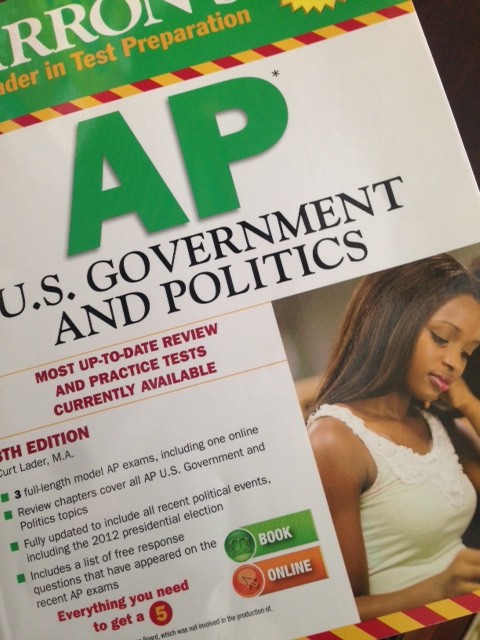With AP Exam Stress Increasing, Here’s How Some Ward Melville Students Cope
May 2, 2015
Advanced Placement courses, of the highest academic echelon available at the high school level, have become an increasingly popular means of demonstrating “scholarly prowess,” exercising skills in a miscellany of subjects, such as Calculus or Psychology, Physics or Music Theory, and earning college credit. Upon each course’s end, an examination (the AP Exam) is administered and scored on a scale of one to five points.
While every school has their cast of resident adroit polymaths and precociously erudite whizzes, most seem to assent that the exam is strenuous business, a tribulation of few parallels (for the time being, of course), and that intensive studying is needed to do a pupil well. However, adhering to such draconian regimes of studying often proves conducive to anxiety. However , via the internet, books, figures of authority or familiarity, or their own personal creed, students have established myriad personal and academic constructs and routines, in order that some semblance of stability be applied to their lives.
To account for the differing perspectives of AP scholars, two fellows on different ends of Ward Melville’s age spectrum – sophomore Craig Deng and senior David Peterman – were cordial enough to elaborate on the issue and their preferred methods of dealing with the associated stress.
KSCOPE: For what subjects are you taking the AP Exams?
CD: World History, just like most of of us in an AP sophomore year, European History, which is sort of just an extension of World, and Environmental Science – it’s not very difficult, I’m just pursuing an interest and preparing for SciO next year.
KSCOPE: Do you have a standard routine of study, and if so, have you abided by it thus far?
CD: I’ve certainly set deadlines, but they’re very broad and open-ended; it’s not just like “finish a chapter in x days,” it’s more like “obtain knowledge of this topic by this date.” For practice tests, I tend to take them very soon after I obtain them. I’ll structure my response based on each test. Environmental is reputed to be easier – raw facts: if there’s pollution, clean it up, if there’s energy, make it more efficient. Not much math. For World, a two-year course means more time to pace yourself, and input from two teachers is very useful. We’ve taken plenty of multiple choice tests in school – no problem. As for the essays, it’ll hurt after writing for two hours straight, but mastery just takes practice. Euro – as I said, an extension. It should be fine. One essay is very similar to World…but the other, I’m scared of. They’re very open-ended and thematic.
KSCOPE: Ultimately, are you stressed about it? Do you have a means of coping with said tension?
CD: As I’ve been preparing…well, there’s the stress of doing well, not of retaining content. I do try to read a bit each night, but if I’m stressed by a topic that I don’t like, I tend to get away and let the info sink in; find internet lectures to alleviate my confusion…or cry myself to sleep.
KSCOPE: As a veteran AP examinee, how influential do you reason these tests are on university acceptance?
DP: Well, I wouldn’t quite call myself that…I took one test last year, and three this year. The tests honestly don’t do much – not all institutions offer credit for them, and while AP students can be intelligent, other factors, such as GPA, are also accounted for. It’s really just a means of saving tuition money.
KSCOPE: How might you advise one manage the stress and nerve caused by the assessments?
DP: Hmm…some words for the future generations, eh? Only take courses that you have a good bearing on, excel at, and of course, enjoy. You also don’t necessarily have to know your major yet to succeed.
KSCOPE: Have you any other advice?
DP: Listen to yourself; you’re not a robot, you have a soul.
Whilst by no means delegates of the entire Ward Melville’s student body, the responses of these two students are representative of and exemplify the diverse nature of the school’s studious cultural aesthetic. Surely, the efforts holistically mustered to prepare for the AP Exams serve as a primary incentive for those that partake of them, and like a contagion, consume the volitions of students to come.
It is important to pay heed to the tensions in one’s academic career and address them, perhaps, as best one may. But ultimately, regardless of one’s talents, a test is a test – albeit, a big test in this case, and whereas one or another might see it their prerogative to far excel their peers, cramming every waking moment and growing capricious with stress, a separate pupil, suffering a dearth of motivation, may find him/herself given to obstinate procrastination. Contingencies vary, but the AP Exams are only tests, and will not be a determining element in life’s ultimate affairs.
The Ward Melville community has faced its share of rigor and triumph throughout the years, but it remains steadfast. Should ever one feel the need to consult another in regards to stress management techniques, it’s never discouraged – it is an axiom of this school that there are many brilliant minds raring to spare their fellows council. To all those taking the AP Exams, and for all further endeavors: good luck!













